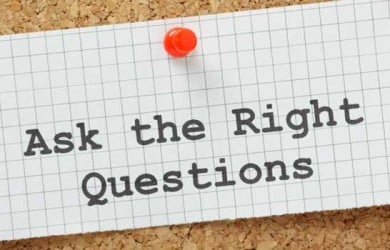7 Effective Tips to Combat Emotional Hangovers in Relationships

 Listen to this article
Listen to this articleHave you ever felt so drained just by being with the wrong people or in the wrong situation? This is what we call an emotional hangover.
What happens if you are grappling with emotional hangovers from unresolved conflicts in a relationship? An emotional hangover is when you wake up feeling physically and emotionally drained, similar to an alcohol hangover.
Emotional hangovers occur after stressful experiences like a breakup or social event. Let’s learn more.
What is an emotional hangover in a relationship?
An emotional hangover in a relationship encapsulates the residual emotional turbulence following unresolved issues or intense moments between partners.
It manifests as lingering tension, communication barriers, or heightened emotional sensitivity, casting a shadow on the relationship’s atmosphere.
These unresolved emotions influence daily interactions like a lingering fog, potentially leading to misunderstandings or distancing between partners.
Addressing and navigating this emotional aftermath is vital for fostering a healthy and resilient relationship, promoting open communication, understanding, and mutual support as keys to dissipating the lingering effects of emotional hangovers.
9 most typical symptoms of an emotional hangover
If you have been looking at how do hangovers feel in a relationship, here are some of the most common hangover emotional symptoms:
1. Heightened sensitivity
Emotional hangovers often lead to increased sensitivity, where minor issues trigger disproportionate emotional responses.
Partners may react strongly to situations that wouldn’t typically evoke such reactions.
2. Communication breakdown
A classic symptom, a lingering emotional hangover can create communication barriers. Partners may need help to express themselves clearly or avoid discussing specific topics, hindering effective dialogue within the relationship.
3. Mood swings
Emotional hangovers contribute to unpredictable mood swings. Partners may oscillate between moments of irritability, sadness, or frustration, creating an emotional rollercoaster that affects the overall stability of the relationship.
4. Physical discomfort
The emotional toll can manifest physically, leading to headaches, muscle tension, or fatigue. These symptoms often go unnoticed but can significantly impact the well-being of both partners.
5. Withdrawal and isolation
Feeling emotionally hungover may prompt individuals to withdraw from social interactions, including with their partners. This isolation can further strain the relationship as partners grapple with feelings of loneliness and disconnect.
6. Lingering resentment
Unresolved conflicts contribute to lingering resentment, poisoning the relationship over time. Partners may harbor negative feelings, leading to a toxic environment that hinders the growth and stability of the relationship.
7. Lack of intimacy
Emotional hangovers commonly result in a diminished sense of intimacy. Partners or spouses may struggle to connect on a deeper level, as unresolved emotions are a barrier to the vulnerability required for genuine closeness.
8. Increased defensiveness
Partners experiencing emotional hangovers may become more defensive, interpreting innocent remarks as personal attacks. This heightened defensiveness can escalate conflicts and create a defensive wall between partners.
9. Inability to let go
A persistent symptom is the difficulty in letting go of past emotional baggage. Partners may inadvertently bring up past issues, preventing the relationship from progressing and fostering a healthy, evolving connection.
Recognizing these common symptoms is the first step in addressing emotional hangovers.
What are the possible causes of emotional hangovers in relationships?
Emotional hangovers stem from significant emotional events, such as breakups, weddings, or traumas. Emotional hangovers can follow any emotionally draining event, positive or negative.
1. Unresolved conflicts
Lingering issues that remain unaddressed can lead to emotional hangovers. When conflicts are swept under the rug, the emotional residue affects the relationship, creating a breeding ground for tension.
2. Poor communication
Inadequate communication or ineffective communication strategies can contribute to emotional hangovers.
Misunderstandings, unexpressed feelings, or misinterpreted cues can leave partners grappling with unresolved emotions.
3. Unmet expectations
Discrepancies between what is expected and what they see in reality can lead to disappointment and frustration. When partners feel let down or unfulfilled, the resulting emotional hangover can strain the relationship.
4. Betrayal and trust issues
Infidelity, broken promises, or breaches of trust can create profound emotional hangovers. Rebuilding trust takes time, and the residual feelings of betrayal can cast a long shadow on the relationship.
5. Stress and external pressure
External stressors, such as work pressure, financial struggles, or family issues, can seep into the relationship, causing emotional hangovers. Partners may inadvertently project stress onto each other, leading to strained emotional dynamics.
6. Unacknowledged emotions
Ignoring or suppressing one’s emotions can contribute to emotional hangovers. When individuals fail to express their feelings openly, these emotions can fester beneath the surface, impacting the relationship in subtle yet impactful ways.
Addressing these root causes involves open communication, active listening, and a commitment to resolving conflicts.
By tackling the underlying issues, couples can work towards preventing emotional hangovers and fostering a healthier, more resilient relationship.
7 effective tips to heal an emotional hangover in a relationship
Emotional hangovers will drain you, that’s for sure. That is why knowing how to cure an emotional hangover is important.
It’s important to note that being emotional during a hangover is a natural response to the stressors that we’re facing.
Learning how to cope with a hangover is a skill to hone, and here are some tips that can help:
1. Open and honest communication
Start your honest and open communication by creating a safe space for open dialogue. Encourage each other to express feelings without judgment.
Honest communication allows partners to understand each other’s perspectives, unraveling the emotional knots contributing to hangovers.
2. Active listening
Cultivate the art of active listening. Pay attention to your partner’s words, emotions, and body language.
Demonstrating genuine interest fosters empathy and validates your partner’s feelings, paving the way for emotional healing.
3. Set realistic expectations
Reevaluate expectations and ensure they align with reality.
Discuss and set realistic goals for the relationship, acknowledging that imperfections are a natural part of any partnership. Adjusting expectations can alleviate unnecessary emotional strain.
4. Quality time together
Invest time in nurturing the emotional connection through shared experiences.
Quality time fosters intimacy, allowing partners to reconnect on a deeper level. Engaging in activities that can bring joy and fulfillment can counteract the lingering effects of emotional hangovers.
5. Seek professional support
Consider couples therapy or counseling to navigate complex emotions together.
A trained professional can provide guidance, offering tools and strategies to address underlying issues and promote healing within the relationship.
6. Practice forgiveness
Letting go of past grievances is essential for curing emotional hangovers.
Forgiveness doesn’t condone the actions but frees both partners from resentment. Embrace the opportunity for a fresh start, focusing on building a stronger, more resilient connection.
7. Self-care and individual growth
Prioritize self-care to ensure emotional well-being. Encourage each other to pursue individual growth and self-discovery.
When both partners prioritize personal fulfillment, it positively impacts the relationship, creating a more supportive and thriving dynamic.
Watch this video to learn more about why self-love and self-care are required in relationships:
FAQs
Emotional hangovers should be addressed so we can find the proper treatment. Along with these frequently asked questions, let’s unravel the complexities of emotional hangovers.
-
Can you actually get emotional hangovers?
While the term “emotional hangover” is not a medical diagnosis, it metaphorically describes lingering emotional effects from unresolved issues in relationships.
Emotional distress can impact mood and well-being, akin to a hangover. It has so many effects that we may not even understand or notice. Sometimes, it takes time for these signs to show.
Recognizing and addressing these strong emotions is essential to maintain a healthy and thriving relationship.
-
How do you recover from a mental hangover?
Have you wondered to yourself, “I want to learn how to get over a hangover of emotions?”
To recover from a mental hangover, prioritize self-care. Engage in joyful activities, practice mindfulness, and get ample rest.
Reflect on the root causes, and if necessary, seek professional support. Open communication with loved ones can also provide emotional relief.
Taking intentional steps to address the mental stressors will promote recovery and well-being.
-
How long do emotional hangovers last?
The duration of emotional hangovers varies.
Factors like the severity of the issue, communication, and coping mechanisms influence their duration.
Some may dissipate relatively quickly with open communication, while others may linger.
Addressing the underlying causes promptly, seeking support, and actively working towards resolution can shorten the duration of emotional hangovers in relationships.
-
Is a hangover the same as depression?
No, a hangover and depression are distinct.
A hangover typically results from excessive alcohol consumption, causing physical symptoms like headaches and fatigue.
This is also the concept of emotional hangovers.
Depression, a mental health disorder, involves persistent feelings of sadness, pain, hopelessness, and a lack of interest in activities.
While both can affect mood, they arise from different causes and have distinct characteristics.
-
Why do I feel hungover when I wake up from therapy?
Some people will experience emotional hangovers after therapy and might wonder how long does therapy hangover lasts.
Feeling “hungover” after therapy might be due to emotional exhaustion or the process of delving into challenging emotions during the session.
Intense introspection and self-reflection can temporarily leave you emotionally drained. It’s a natural response as you work through emotions. If this feeling persists, discussing it with your therapist is best.
Conclusion
Addressing emotional hangovers in relationships is crucial for fostering resilience and well-being.
By embracing open communication, active listening, and a commitment to personal and relational growth, couples can navigate through the aftermath of unresolved issues.
Taking proactive steps towards healing ensures a stronger, more connected partnership, laying the foundation for a fulfilling and enduring relationship.
 Expert Q&A
Expert Q&A
Trusted by +5 Million People
Ask your question related to this topic & get the support you deserve from experts.
 Tips
Tips
Share your valuable relationship tips with +5 million people
Share this article on
Want to have a happier, healthier marriage?
If you feel disconnected or frustrated about the state of your marriage but want to avoid separation and/or divorce, the marriage.com course meant for married couples is an excellent resource to help you overcome the most challenging aspects of being married.
 Thanks for your feedback!
Thanks for your feedback!

























 We'd love your feedback!
We'd love your feedback!